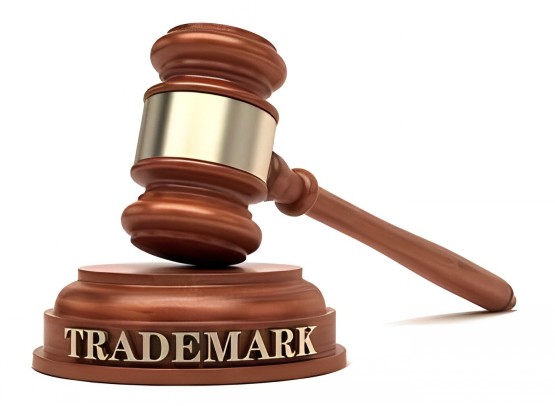On February 14, 2023, the Business Facilitation Act (“BFA”) was passed into law in Nigeria. The stated objective of the Act is to promote the ease of doing business in Nigeria, eliminate bottlenecks, amend relevant legislation, and institutionalise all reforms to ease implementation. The Act amends existing legislations, including the Trade Marks Act Cap. T13, LFN 2004 (“TMA”) and the Patent and Designs Act Cap. P2 LFN 2004 (“PDA”). This newsletter will consider the validity of service marks registered prior to the passage of the BFA and discuss defenses available to right holders who own such service marks.
Amendment of Section 67 of the Trademarks Act
The BFA amended the TMA by introducing a definition for the term “goods”, which states that “goods” include “services”, and by amending the definition of the term “trademark” to include reference to use in relation to goods or services, shape of goods, packaging and ‘combination of colours’. The amended definition of trademark reads as follows:
“ (a) a mark used or proposed to be used in relation to goods or services for the purpose of indicating a connection between the goods or services and a person having the right, either as a proprietor or as a registered user, to use the mark, whether with or without any indication of the identity of that person, and may include shape of goods, their packaging and combination of colours; and
(b) in relation to a certification trademark, a mark registered or deemed to have been registered under section 43 of this Act” (Emphasis ours)
Service Marks
The inclusion of services in the definition of a trademark under the TMA aligns our legal regime with the internationally recognised position on trademark protection, and the Nigerian Trademark Registry’s practice of accepting applications for the registration of service marks. Prior to the amendment of the TMA, registration of service marks was based on the Minister’s directive[1] which created additional classes of goods covering services, in line with Nice Classification. However, many practitioners have queried the validity of the Minister’s directive on the ground that it amounted to an amendment of the TMA, an act that can only be performed by the National Assembly. Since the BFA does not have retroactive effect, the validity of service marks filed prior to the effective date of the amendment to the Trademarks Act will continue to be queried in certain sections.
The legality of the registration of service marks in Nigeria pursuant to the Minister’s directive turns on the question whether the Minister, in the exercise of the powers conferred under the provisions of sections 42 and 45 of the TMA, could validly introduce new classes 36 to 45. While section 45 empowers the Minister to make regulations for, among other purposes, classifying goods for the purposes of registration of trademarks, section 42 empowers the Minister to make such regulations and prescribe such forms as he thinks expedient, for empowering the Registrar to amend the register, by making or striking out or varying entries therein, so far as may be necessary for the purpose of adapting the designation therein of the goods or classes of goods in respect of which trademarks are registered to any amended or substituted classification that may be prescribed. There have been a few judicial decisions which cast some doubt on the legality of service mark registration. In the unreported case of Ramhead Industrial & Commercial Co. Ltd v. Ekulo International Ltd & 2 Ors.[2], Justice M. B. Idris held that:
“…(iii) the use (of Trademarks) must be in relation to goods. The act in its present form does not cover service marks (marks used by service organisations to distinguish their services from those of others). See Akesa (Nig.) Ltd v. Union Bank of Nigeria Ltd Unreported Suit No. FHC/L/95/81.”

The foregoing raises a fundamental question about the position of service marks registered prior to the passing of the BFA and the implication for unsuspecting right holders who registered their service marks in reliance on the Minister’s directive. Such right holders may however rely on the following defences:
1. Public Policy: Public policy refers to the principles and values that are considered to be in the best interest of the public and can be used as a basis for challenging the legality of certain actions or policies. In this case, it may be argued that it would be against public policy to invalidate service marks that were obtained in good faith by businesses who relied on a government policy. This argument is premised on the idea that it is in the public interest to promote stability and predictability in commercial relationships, and that invalidating registered service marks could create uncertainty and harm the businesses that have relied on the Minister’s directive to register their service marks.
2. Good Faith: Another defence that may be available to such right holders is that having acted in good faith and pursuant to a government action or directive, they should not suffer harm if the government action or directive is found to be invalid. There are judicial precedents in support of this position. In the case of In Re Sones[3], the appellant had registered the phrase "I ♥ DC" as a service mark in accordance with a D.C. government policy that allowed for the registration of such marks. However, the policy was later found to be unconstitutional. The Trademark Trial and Appeal Board refused to cancel the registration, finding that the appellant had acted in good faith and that cancellation would be inequitable. Another example is the case of Phoenix Entertainment Partners, LLC v. Urban Outfitters, Inc.,[4], the plaintiff had registered the phrase "Firebird" as a service mark in accordance with a Pennsylvania State statute. The statute was later found to be unconstitutional, and the defendant argued that the registration was invalid due to the unconstitutional statute. However, the court rejected that argument, finding that the plaintiff had acted in good faith when registering the mark and had no reason to believe that the statute was unconstitutional.

There is an urgent need for clarity on the validity of service trademarks filed pursuant to the Minister’s directive. Considering that the objective of the BFA is to promote ease of doing business in Nigeria, the uncertainty of this situation could undermine investor confidence in Nigeria. It is hoped that the National Assembly and the Executive branch will take steps to conclusively address the doubt lingering about the validity of the service marks registered prior to the passage of the BFA. In the interim, we recommend that proprietors of such service marks should ensure that they maintain their trademark registrations, including paying renewal fees when due.
DISCLAIMER: This publication is only intended to provide general information on the subject matter and does not by itself create a client/attorney relationship between readers and our Law Firm or serve as legal advice. We are available to provide specific advice on the subject of this newsletter, as may be required.
[1] Gazette no. 54 vol. 95 4 September 2008
[2] Suit No: FHC/L/CS/256/2012 unreported, delivered 7/6/2017
[3] 590 F.3d 1282 (Fed. Cir. 2009) Decided Dec 23, 2009
[4] 609 F. Supp. 2d 537 (S.D.N.Y. 2009)











